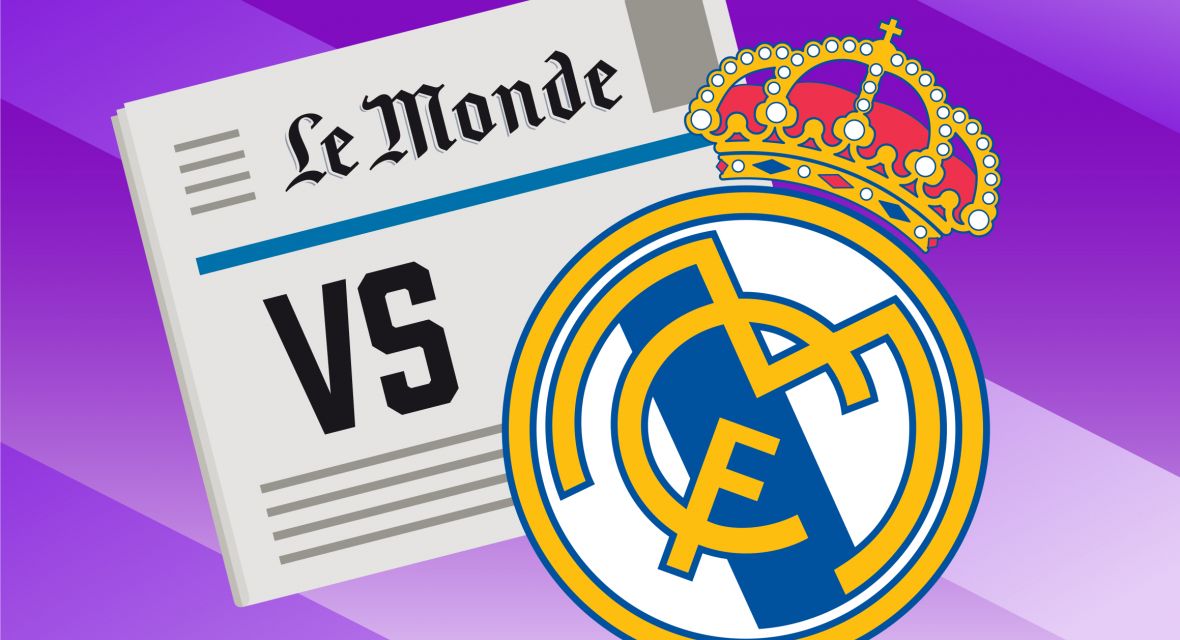Real Madrid vs Le Monde – A Free Press?
On 4 October 2024, in addition to the much-discussed Diarra decision, the Court of Justice of the European Union (“CJEU”) also delivered its judgment in the long-running defamation dispute between Spanish football giants, Real Madrid, and French newspaper, Le Monde.
What happened?
In 2006, Le Monde published an article that made doping allegations against Real Madrid and three other Spanish clubs, relating to their alleged involvement with Eufemiano Fuentes, a Spanish doctor who was implicated in cycling’s “Operación Puerto” doping scandal.
Real Madrid sued for defamation and were awarded compensation of €300,000 for “moral damage” by a Madrid court, which later rose to €390,000, with interest and costs.
However, Le Monde refused to pay and the question of whether Real Madrid could enforce the damages award eventually made its way through the French courts, before being referred to the CJEU.
What did the court decide?
Whilst the CJEU was not called upon by the French courts to make a final decision – only to issue a judgment on the way the relevant principles of EU law are to be applied – it is clear from the CJEU decision that Real Madrid’s enforcement action is very unlikely to succeed.
At the heart of the case was the right to freedom of expression, enshrined in Article 11 of the EU Charter of Fundamental Rights. Le Monde argued that the damages award of €390,000 violated this right, as it would have a “chilling effect” on press freedom.
In considering this question, the CJEU referred to the European Convention on Human Rights, which similarly protects the free press under Article 10, and the case law of the European Court of Human Rights (“ECtHR”).
The CJEU held that:
While persons harmed by defamatory statements or other unlawful content must be able to bring an action for damages as an effective remedy against damage to their reputation, any decision awarding damages for damage to reputation must bear a reasonable relationship of proportionality between the amount awarded and the damage in question.
Crucially, for the present case, the court also noted that there is a distinction between harm caused to natural persons (i.e., individuals) and legal persons (i.e., companies) as, whilst damage to an individual’s reputation may affect their dignity, the reputation of a company “does not have such a moral dimension”.
Whilst the question of proportionality will be for the French court to decide, this may be a challenge for Real Madrid, given that the significant compensation it was awarded related only to “moral damage”, rather than any financial damage.
What does this mean?
This decision clearly does not give media outlets carte blanche to publish defamatory allegations without having to compensate those whose reputations are left damaged. Allegations of doping are plainly potentially defamatory and those who are wrongly accused will have claims for compensation.
Instead, the decision reinforces the principle that any damages awarded must be proportionate to the damage inflicted and highlights that companies will not generally be able to recover for any “moral damage” (i.e., injury to feelings).
Whilst Real Madrid v. Le Monde is an EU law case (which is not strictly relevant in England post-Brexit), it applies equivalent reasoning to that of the ECtHR, whose decisions are applicable in England.
Indeed, the CJEU’s ruling is consistent with English case law, which has held that “A company cannot be injured in its feelings; it can only be injured in its pocket. Its reputation can be injured by a libel but that injury must sound in money”. Similarly, section 1 of the Defamation Act 2013 makes clear that a company will only be able to bring a claim for defamation if it has suffered or is likely to suffer “serious financial loss”.
Companies can still recover compensation for reputational harm, but such damages will be calculated by reference to its business goodwill and are likely to be low in commercial terms. More substantial damages will only be available where a company is able to prove that it has suffered specific financial losses.
However, obtaining financial compensation is often not the primary purpose for bringing a defamation claim. The act of having a court rule that an allegation is untrue, or securing an apology and/or retraction from the publisher, can be just as – if not more – important.
Indeed, in 2020, Morgan Sports Law succeeded in obtaining such remedies for French footballer, Mamadou Sakho, in respect of defamatory allegations made by WADA regarding anti-doping proceedings in which Mr Sakho was cleared of any wrongdoing, in addition to a substantial sum of damages.
Therefore, whilst there are limits on the damages that can be granted to corporate entities, press freedom is not unrestrained, and inaccurate allegations of wrongdoing (relating to doping or otherwise) may still give rise to significant libel claims, against both companies and individuals.
Authored by
Donna Bartley
Partner
Ben Cisneros
Associate
Footnote
1. See C‑633/22 Real Madrid CF v. Société Éditrice du Monde at para. 57
2. See C‑633/22 Real Madrid CF v. Société Éditrice du Monde at para. 58
3. Lewis v. Daily Telegraph Ltd [1964] AC 234 at 262


